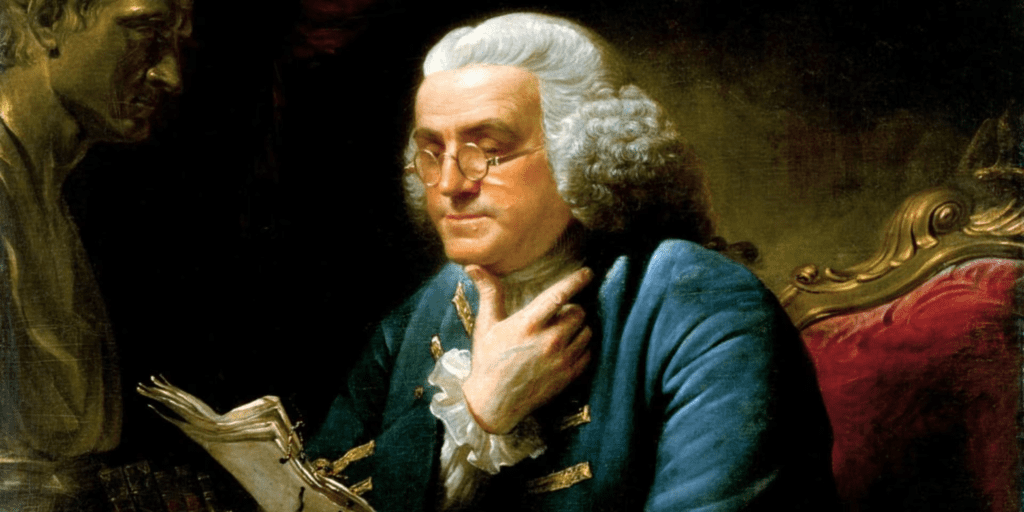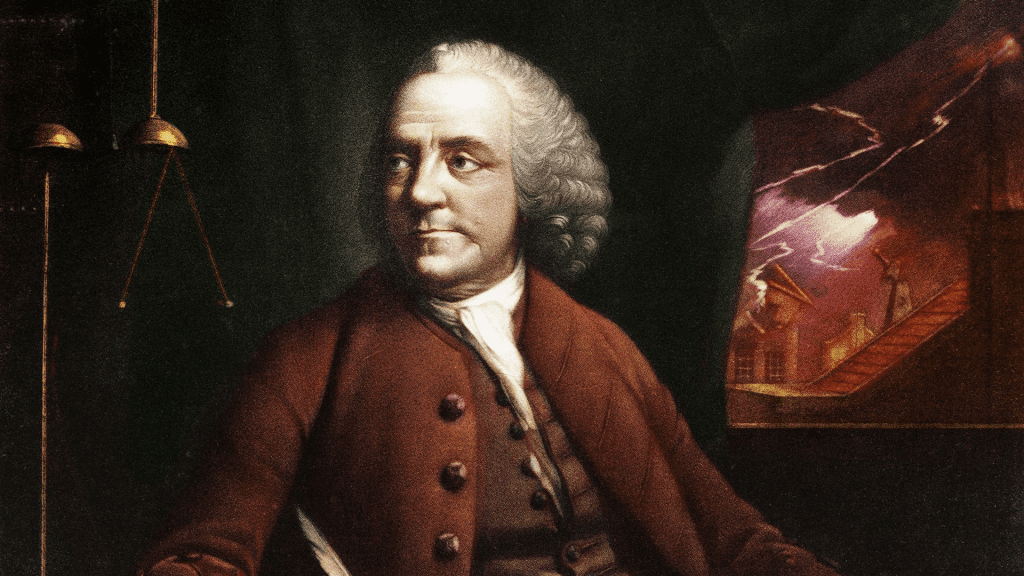When we think of Benjamin Franklin, most of us recall his famous experiments with electricity, his invention of the lightning rod, or his role in drafting the U.S. Constitution. But Franklin’s legacy isn’t just about what he created it’s about how he shared those creations freely, believing that knowledge belonged to the world.
At a time when many inventors were scrambling to patent their ideas for profit, Franklin took a different path. He believed that inventions should serve the public good, not personal gain. As he once wrote, “As we enjoy great advantages from the inventions of others, we should be glad of an opportunity to serve others by any invention of ours.”

Invention Without Ownership
Franklin’s most famous innovations weren’t just clever they were life-changing. Take the Franklin stove, for example. In the 1740s, he designed a more efficient heating system that used less wood and produced more warmth while reducing smoke in the home. It was a massive improvement over open fireplaces, which were not only wasteful but dangerous.

Despite its success, Franklin chose not to patent it. He believed that keeping it open for public use would benefit more families, especially the poor, who could not afford traditional heating systems. That choice meant others could build, improve, and distribute the stove without needing his permission.
This was not a one-time act of goodwill. Franklin had a long list of creations he never patented, including the lightning rod, a flexible urinary catheter for his brother (who suffered from bladder stones), and even ideas for bifocal glasses. These weren’t just curiosities they were tools designed to improve human lives.
Video:
14 Facts About Benjamin Franklin | America’s Most Eccentric Founding Father
Why He Refused to Patent
Franklin’s reasoning was simple but powerful: he saw innovation as a public service. While he could have profited greatly from many of his inventions, he believed in a world where knowledge was shared. His view was deeply democratic and ahead of its time. In a society still shaping itself, Franklin wanted progress to be accessible not a privilege reserved for the wealthy.
He understood that real impact came from widespread use, not ownership. And through that lens, his generosity becomes even more revolutionary than his science.

Legacy Beyond the Lab
Franklin’s philosophy helped shape a uniquely American identity around community, collaboration, and practical solutions. His life blended science, politics, and social responsibility in a way that still resonates today.
Video:
Benjamin Franklin’s DARK Secret (EXPLAINED)
We often credit him for shaping government and diplomacy, but his stance on intellectual property left just as profound a mark. In an age where innovation is often locked behind paywalls or patents, Franklin’s actions remind us of the power of open access and altruism in invention.
What We Can Learn Today
In today’s world where ideas are often fiercely protected, monetized, and trademarked Franklin’s generosity offers a powerful counterpoint. It encourages us to ask: What’s the true value of an invention? Is it measured in dollars, or in lives improved?
Franklin chose lives. And in doing so, he helped millions without ever charging a cent.

Conclusion: A Legacy of Sharing
Benjamin Franklin was a scientist, diplomat, writer, and thinker but above all, he was a generous innovator. His refusal to patent life-improving inventions wasn’t a missed opportunity. It was a conscious decision to leave the world better than he found it. And that might just be his most brilliant idea of all.


